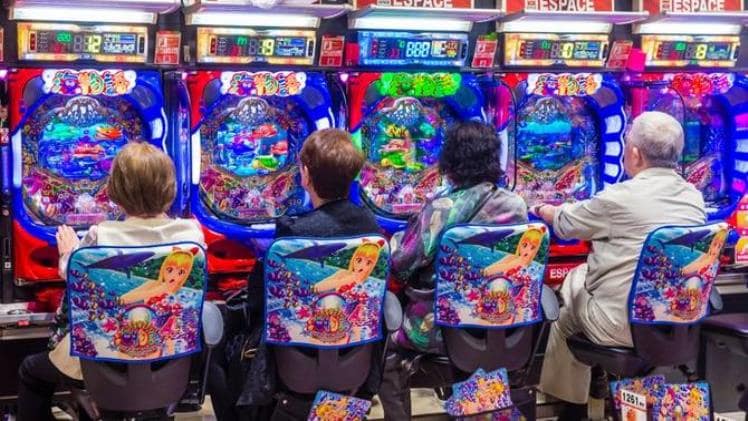Pachinko is one of the most popular anime series in Japan. Fans love the show for its unique twists and turns. The series is set in different countries and decades and tells a story that’s both gripping and heartbreaking. The backstory of Pachinko is told in a separate episode, which focuses on Etsuko’s secret hope that Solomon will find her. The story also explores the relationship between Etsuko and a pachinko man.
Pachinko’s backstory is a standalone episode
The seventh episode of Apple TV+’s “Pachinko” revolved around the background of the titular character, Hansu. It was written by Ethan Kuperberg and directed by Kogonada, and it serves as a standalone episode for a historical event. The episode’s events are inspired by the disaster that hit Korea in 1905.
The backstory of the show focuses on the past, which Sunja and her mother must face in order to raise a child. The episode opens with a Korean woman traveling through the forest, asking a wise woman to lift her curse. The woman is Yangjin, Sunja’s mother. Her father sold her to a man with a cleft palate, but Hoonie, the man who bought her, is a kind man who is trying to have a child with Yangjin.
パチンコ まとめ is an epic story based on the novel by Min Jin Lee, and it follows a Korean family through the decades. In Season 1, the series focuses on Sunja, the matriarch of the family. She grew up in Korea and migrated to Japan after her husband became ill. Sunja later returns to Korea in the 1980s, where she raises two sons.
Etsuko’s secret hope for Solomon to find her
Etsuko is a 42-year-old divorcee and restaurant owner. One day, she gets a call from Hana, a 15-year-old girl. Hana is pregnant. Etsuko has been pregnant before, when she was younger. She’s unsure what to do about the news, but decides to stay and help Hana.
When Mozasu refuses to return her watch, Etsuko wonders if her mother will be able to help. Her mother spent money trying to save her daughter, and she is now sick and dying. But she is still determined to find her daughter, even if it means risking her life. Solomon’s boss, however, doesn’t believe Joseb. Solomon also comforts Hana. He promises to find Etsuko.
The two don’t have much contact for three years after Hana leaves Tokyo for college. She calls him to ask him where she’s been living, but Solomon doesn’t tell her. The two men eventually find Hana, and Etsuko begs her to come home. The two go on to date and fall in love. But it’s not all roses. During this time, Hana is still working as a club hostess, and Etsuko wants her to come back home.
Etsuko’s relationship with a pachinko man
The premise of Etsuko’s relationship with shady pachinko man Solomon is as bizarre as it sounds. In the book, the two friends fall in love and then are separated by a series of events. In the second part of the novel, Etsuko finds herself in an even more complicated situation. The two friends must figure out how to get back together after the events that have changed their lives.
Etsuko’s relationship with the パチンコまとめ man began when Hana was eleven years old and asked her to go on a date with him. She was so thankful that he agreed to talk to her, but Hana was not. Hana had been deceiving her parents as a young girl and had lied to them. Moreover, she was not supposed to ask her any intrusive questions or sound concerned. Afterward, Hana became suspicious and began to hate Etsuko.
Etsuko’s relationship with the pachinko man is a case of indirect guilt, but it also reflects traditional values. Etsuko’s guilt may be projected onto Sachiko’s character. The wasteland environment, however, reflects the turn of things and murder.
Pachinko’s illness
Pachinko, a pinball-like gaming machine, has provided a source of livelihood for many ethnic Koreans in Japan. A new documentary, Shusenjo, examines the controversy surrounding the use of “comfort women.” These women, who hailed from the Korean Peninsula, were coerced into working in Japanese military brothels during World War II. The documentary shows the effects that these conditions had on the Korean people.
Pachinko is big business in Japan, but the industry is highly dominated by Korean Japanese. The Korean community has long been discriminated against and is now becoming increasingly difficult to integrate into the local community. Min Jin Lee’s novel, “The Immigrant,” is set in this community and tells the story of a Korean Japanese family’s struggle to fit in. Lee was inspired to write the novel after attending a lecture by an American missionary, who shared the story of a 13-year-old Korean boy who committed suicide. After his death, his parents found his yearbook from school.
Although gambling is illegal in Japan, there are many forms of gambling in the country. There is no single government agency responsible for the regulation of gambling in Japan. Research suggests that the number of Japanese adults with gambling problems is increasing. Many people are finding it a way to cope with stress and escape from work-related pressures, feelings of inadequacy, or other stressors. Gambling problems can be very embarrassing and lead to social exclusion.

